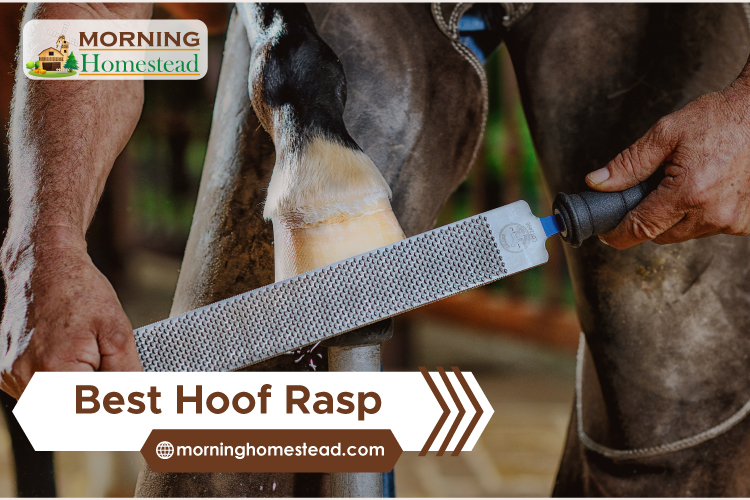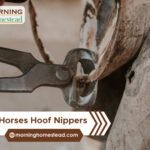Last Updated on June 8, 2023 by Georgie Smith
Knowing what to do for your horse when it has a loose shoe can be the difference between a healthy horse and one living in pain. If you find that your horse has a shoe that is only slightly loose, you can bind it with duct tape or self-adhesive until the farrier arrives.
If you find that it is really loose, you should remove it as soon as possible. If not, your horse can easily cause an injury to itself or even a rider. The horse can step on the shoe with its other hoof, which would rip the shoe off even more.
If that occurs, there could also be lingering sharp objects such as clips and nails moving around under the horse’s hoof. Horses can easily chip and break their hoof wall if the shoe for any reason rips off.
If possible, remove the loose item as soon as you notice there is an issue. That brings you to the purpose of this guide and review. The goal is to educate readers about the best hoof rasp available today. We find the five best-selling items and break each one down for the consumer to make shopping a stress-free task.
It is not our goal to put these items in any particular order. This guide and review are completely unbiased without judgment.
Basic Comparison:
Projects
SSL
Storage
Domains
Hoof Rasp 14
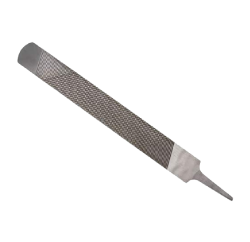
Easy to hold
Easy to use
14 ounces
Rectangular
Nicholson Farrier Rasp

Nicholson
Farrier Rasp File
8.46"L x 3.07"W
Rectangular
Bellota Mini
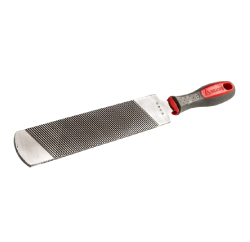
Easy to hold
Easy to use
14 ounces
4.72 inches
The 5 Best Hoof Rasps Available on Amazon Today:
NRS Save Edge Farrier Hoof Rasp 14
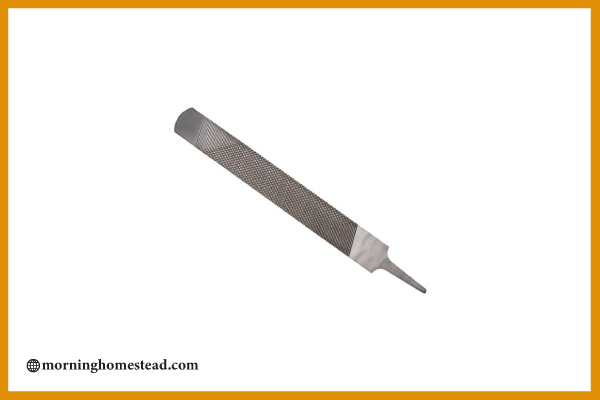
First on this list is the NRS14-inch Farrier Rasp. This item is a double-sided tanged hoof rasp for the person that wants the maximum removal of material from your horse’s hoofs. One main highlight of this item is how easy it is to use and its performance.
Good Stuff
Bad Stuff
If you like this product but need more information, click here. You will also find secure ordering with prompt shipping:
Heller Black MasterTeeth with Six Feet of Cutting Surface (Made in the USA)
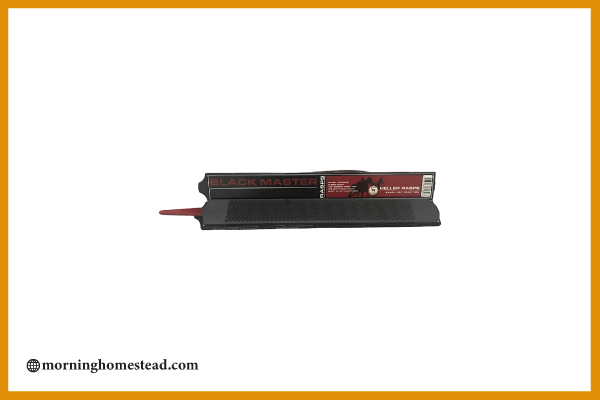
Eximius means excellent in Latin. This item comes from the steel capital of the world, Pittsburgh, PA. The Xtreme Farrier Rasp advances and modernizes the hoof rasp through innovative designs, advanced manufacturing, and clever performance.
This Ferrier rasp is an entirely new level of durability and sharpness for professional hoof cleaning and protection.
Good Stuff
Bad Stuff
Click here to go to this products page for more details on this Eximius Rasp and get yours ordered today:
The EVO Hoof Care Radius Rasp-1 ’
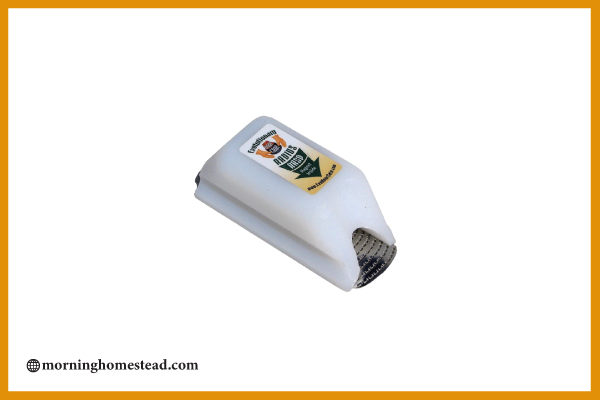
Horse owners, trimmers, and farriers appreciate the EVO RR-1 Pro Barefoot Hoof Shaping Tool. This particular item does more than merely trim. It is an aggressive tool for wall rounding that creates the Arc while cutting.
The unique curve gives you the ability to rasp above the bearing surface on the wall of the hoof. That extends the horse’s arc upward.
Good Stuff
Bad Stuff
Click here for more information, and pictures, and to securely order yours today.
Bellota Mini
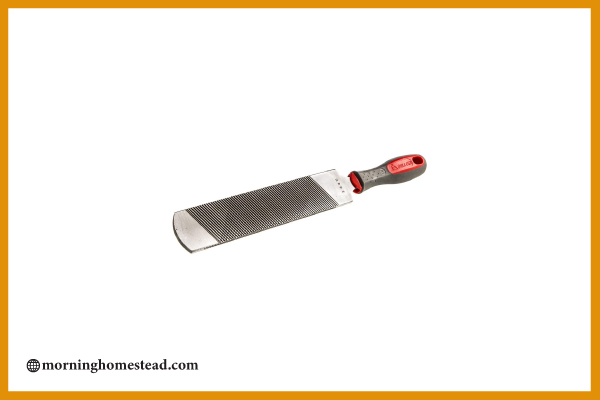
This Bellota Mini Rasp is an “Amazon Choice” product. The unique chromium steel is not only durable; it is perfect for ponies, mini horses, and foals.
Good Stuff
Bad Stuff
To find out more about this item, click here. You can also order yours today and have it arrive for the holidays.
Nicholson Farrier Rasp File, American Pattern, Rasp Cut, Rectangular, 14″ Length
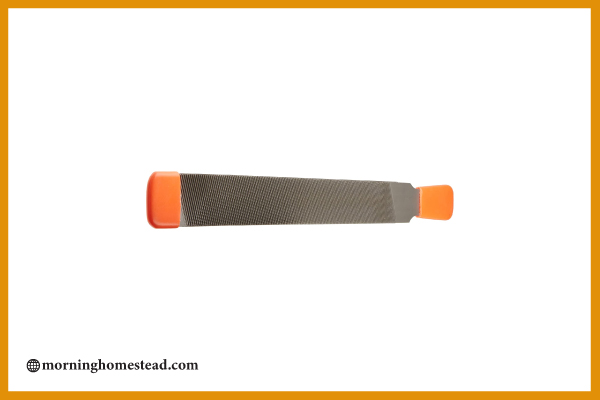
Here you have the Nicholson Farrier Rasp File with an American Pattern. The file is 14 inches in length with “rasp-cut” teeth on one side to allow aggressive removal and course teeth patterns that ensure the end project is smooth.
With six teeth to each row, the rasp gives a smooth finish than the products with five teeth to each row. This file comes with a handle for comfort and durability.
Good Stuff
Bad Stuff
You can find out more information by clicking here. There are also pictures and reviews from consumers just like you.
Protecting Your Horses Hoof
Once you have the shoe removed, you may need to add protection to the hoof. If you are not removing the shoe but leaving them off the horse to let it go barefoot, be sure to protect the horse as best you can.
Protecting your horse’s hoofs may prevent splits and chips until the farrier can get to it to replace its shoe correctly. To aid with preventing injuries, try wrapping the horse’s hoof thick with self-adhesive or duct tape as mentioned above.
*Writers Tip*
If you are planning to keep the shoes off your horse(s), the animal may need to have its hoofs trimmed to maintain the hoof wall and proper angles. It can be painful if the hoofs crack and split.
Keep in mind that even though it may be possible to ride your horse, it is best not to do so until the Farrier replaces the shoe. Most farriers repair horseshoes quickly which prevents extended delays of riding.
However, if you must ride and the farrier cannot get to your horse promptly, do your best to keep it on soft areas such as sand or grass. It is never very safe to let the horse walk on rocks or rough terrain. Doing so can bruise the sole and possibly damage the hoofs. That is especially true if the horse rarely walks barefoot.
There is also a simple alternative for protection with a hoof boot such as this item. A boot such as this is easy to put on as well as take off after riding. You can also leave it on the horse during stall time and turn it out for added protection of the hoof. Be sure to check often to ensure the hoof boot is not flapping off or chaffing which can cause problems as well.
Tips for Hoof Chips and Cracks
Horses, over time, will develop cracks in their hoofs. Most are mild and will resolve themselves with maintenance from the farrier care and healthy nutrition. However, there is also type of cracks that you will need to go one step further to repair.
The last thing you want to happen is new cracks developing and further damage to the horse. Cracks are a serious matter that you need to keep an eye on before it gets out of hand. As with other horse issues, first, ask yourself why your horse is having this problem.
Horse hooves develop at a slow rate (less than ½ inch) per month. Cracks take a long time to develop and grow once they start. You will find that getting a solid answer to “why” can often be frustrating, expensive, and more time-consuming than trying other solutions.
Names for Hoof Chips and Cracks
Like most things, there are various names for hoof chips and cracks. They get the name from the reason and the area of their location. Other names are the following:
- Heel Cracks
- Quarter Cracks
- Sand Cracks
- Grass Cracks
- Bar Cracks
- Toe Cracks
FAQs:
Q: What health issues cause cracks?
A: There could be a number is concerns. However, the leading cause is more than likely nutrient deficiency or lack of the right vitamins.
Q: Do horses feel when shoes are loose?
A: Maybe not feel the shoe is actually loose, but, that it is causing discomfort or trouble walking.
Conclusion
There are several reasons why cracks happen in your horse’s hoofs. Nutritional issues are the leading culprit if the cracks are on all four feet. The walls of the hoof may be thinning or weak, slow-growing, or begin developing ridges.
If you do notice the horse continues to develop chips or cracks, consult with your vet as soon as possible. Do you have more information that could be useful for readers? If so, please leave us a message below, and we will get back to you.
While you are here reading, could you please “like and share” our work so that we can continue to help other consumers?

